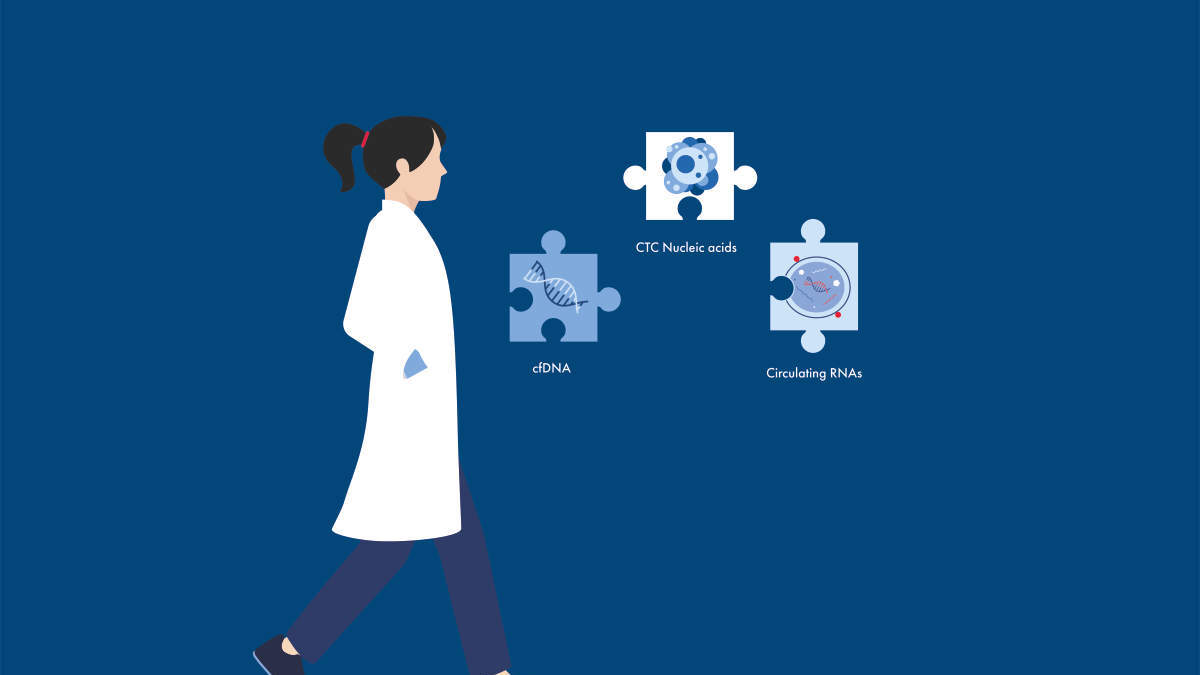Have you ever asked yourself: Do we miss (or even waste) genomic and transcriptomic information by considering only one liquid biopsy analyte? How would the picture change if all analytes could be investigated?
Puzzled about which analyte to study in liquid biopsies for cancer research?
You can get a complete picture from liquid biopsies by stabilizing and isolating multiple analytes from the same blood draw to generate robust and reproducible insights.
It might be easier than you think to start isolating circulating tumor cells (CTCs), cell-free DNA (cfDNA) and circulating RNAs from blood samples. And you don’t have to do it all at once. Storage of samples until you are ready to analyze them increases your flexibility to plan your studies and accelerate your research.
